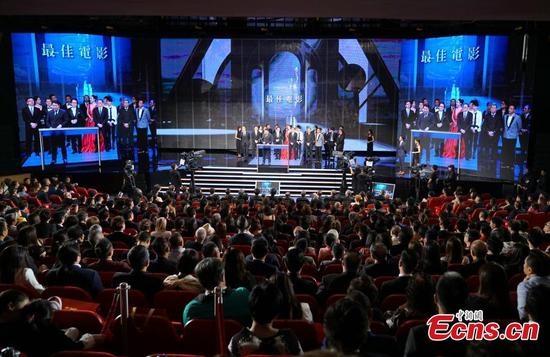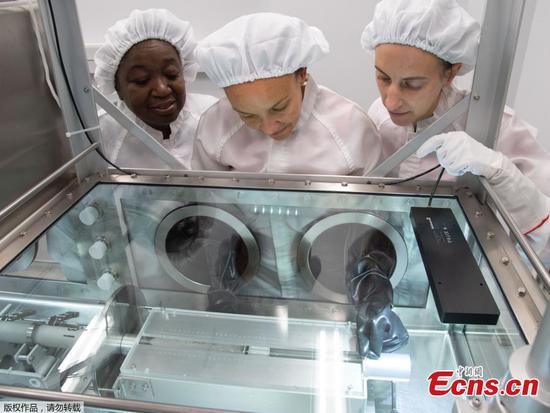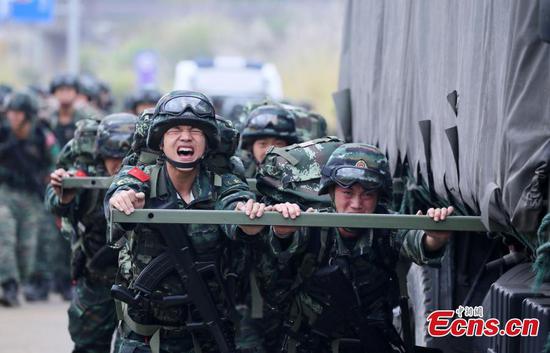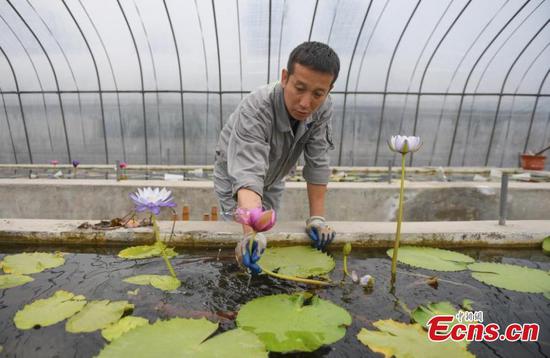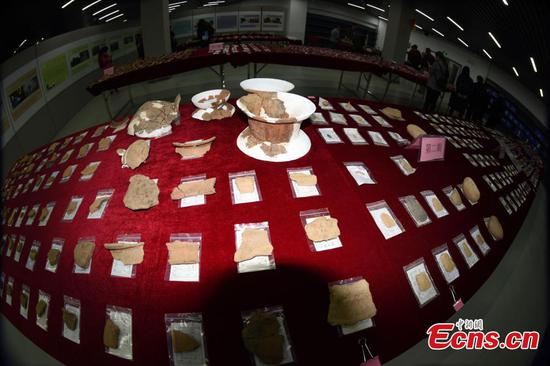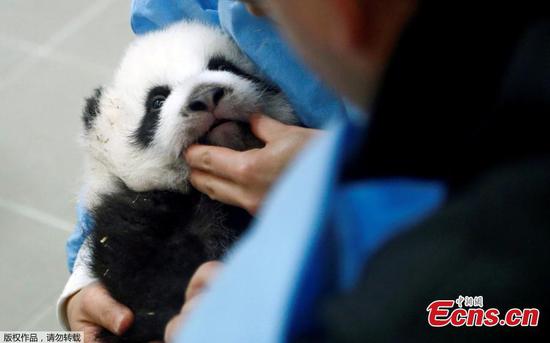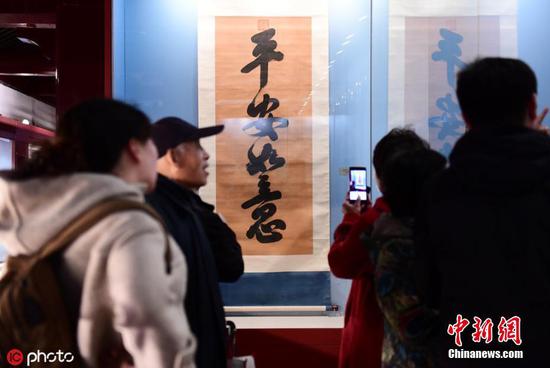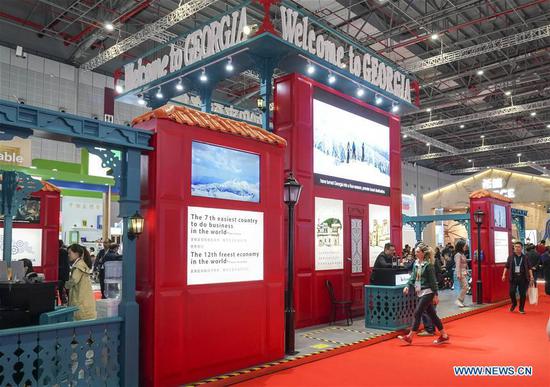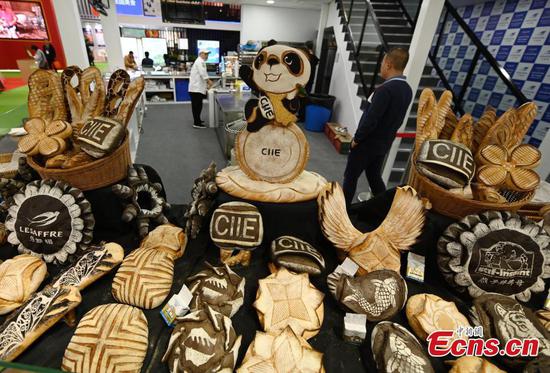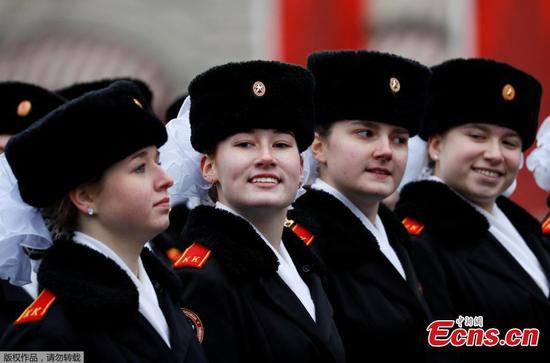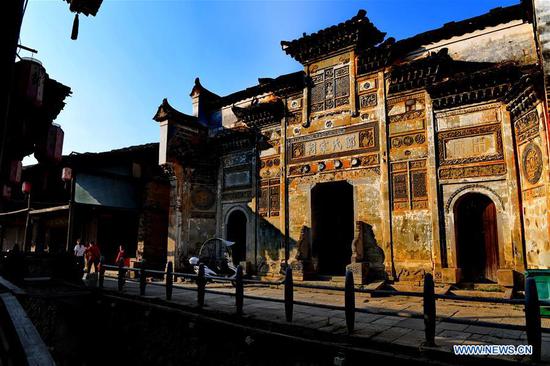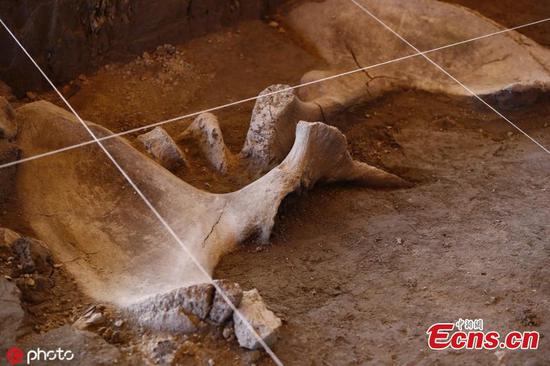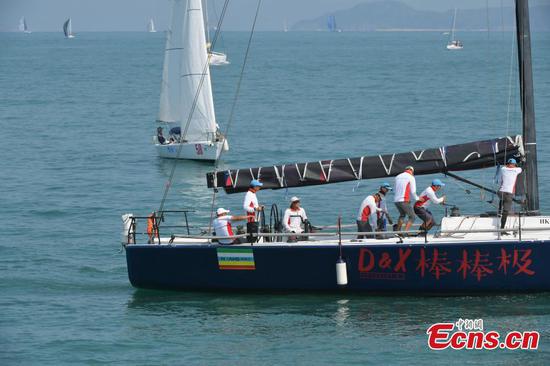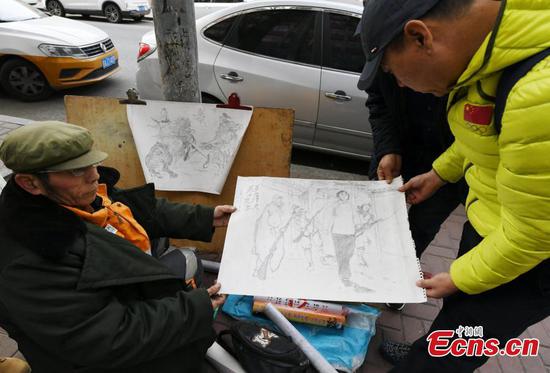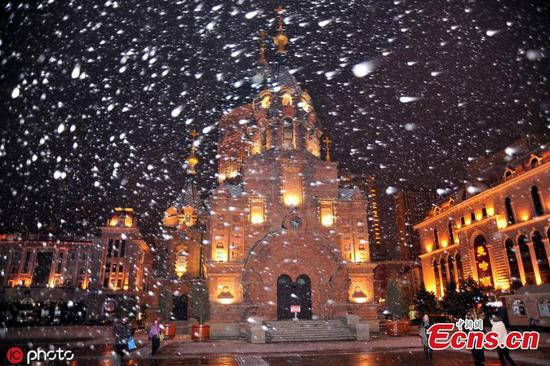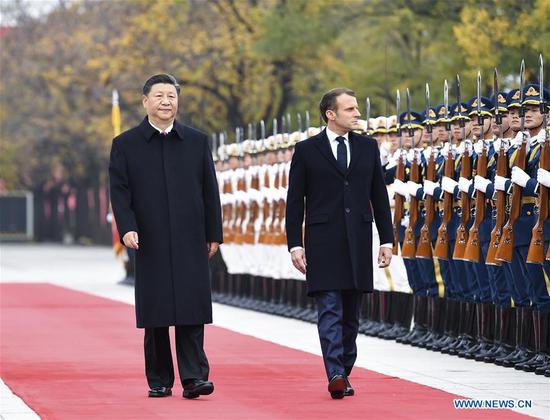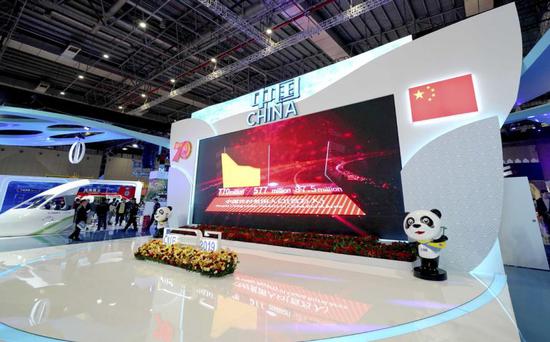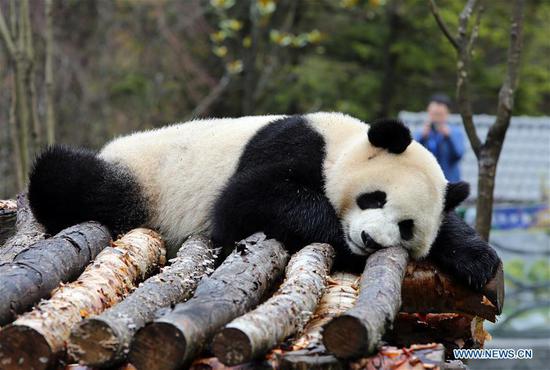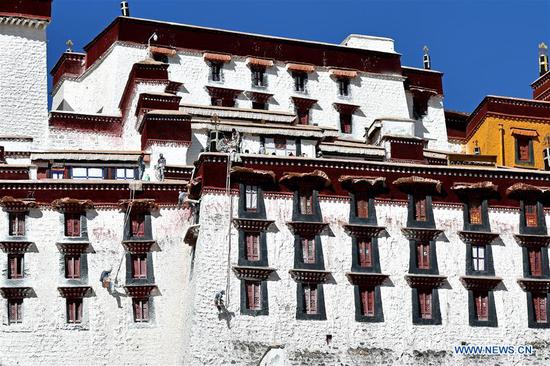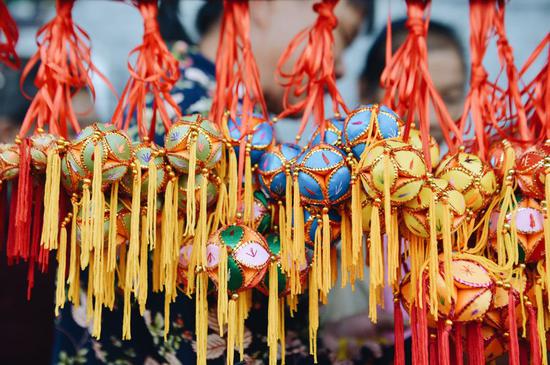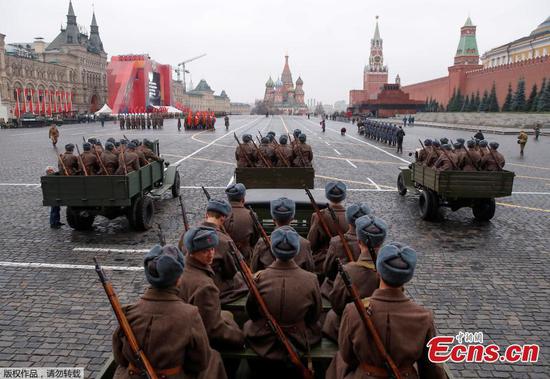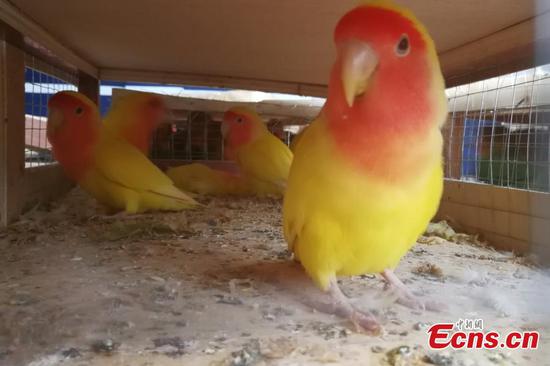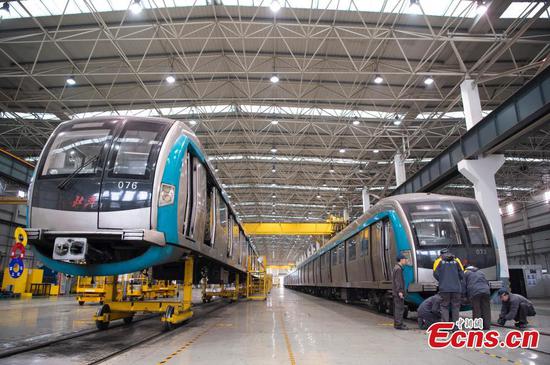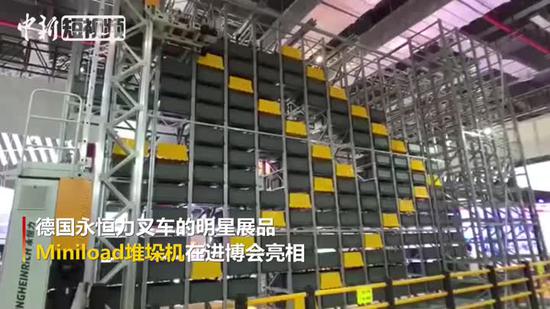
A scene from the oneman Peking Opera The Death of a Government Clerk. PROVIDED TO CHINA DAILY
Last year, it staged more than 600 shows, attracting audiences totaling more than 100,000. Ticket prices are kept affordable at 100 yuan ($14.90), which has also helped attract fans.
From Oct 16 to Dec 31, more than 70 traditional Chinese opera performances will be staged at Star Theaters during the Sixth Xiqu Opera Black Box Festival, along with seminars, exhibitions and workshops. The festival covers a wide range of operatic genres, including Peking, Cantonese, Kunqu, Yueju and Huangmeixi.
Han Yuechao, a Star Theaters producer, said: "Young audiences are open to various art forms. Although traditional Chinese operas are often considered old-fashioned, directors, scriptwriters and actors present these old art forms with fresh ideas. For example, the stories are told with a contemporary touch, which connects to and resonates with our daily lives."
During the past six years, more than 80 traditional Chinese opera productions have been staged during the festival, attracting a total of about 100,000 fans.
Yan Qinggu, director and actor with the Shanghai Peking Opera Troupe, said, "The most appealing aspect of staging a Peking Opera performance at a small theater is the way the actors challenge the traditional acting style and directors customize the decor and plot to match the size of the audience."
Last month, as part of the festival, Yan staged his one-man Peking Opera The Death of a Government Clerk, adapted from Russian writer Anton Chekhov's short story of the same title. The show premiered in Shanghai in 2007.
In 2000, the Shanghai Peking Opera Troupe launched a project to encourage young directors and actors to create new pieces with innovative ideas. Yan set The Death of a Government Clerkduring the Ming Dynasty (13681644) and combined local dialect, pingtan (storytelling with music and singing in the Suzhou dialect) and mime with Peking Opera.
The result was beyond Yan's expectations. For the Shanghai native, who started practicing the 200yearold art form when he was 11, it was a bold experiment to break the mold, as Peking Opera follows strict and systematic rules.
"It is a complicated and highly stylized art form that combines acrobatics and martial arts as well as singing, dancing and drama. It is adaptable and versatile when mixed with other art forms," Yan said.
For the Beijing festival, young scriptwriter Zhang Chuyin wrote the story Nobody, based on The Cop and the Anthem written by William Sydney Porter, better known by his pen name O. Henry.
Zhou Chuanjia, a 75yearold theater historian who graduated from Peking University with a major in Chinese language and gained his master's degree from the Chinese National Academy of Arts, said the concept of small theater came from Andre Antoine, a French actor-director who formed the Free Theatre, an experimental company, in Paris in 1887. By staging smaller productions, the company aimed to support young scriptwriters, directors and actors' artistic creativity and experimentation to reach more-diverse audiences.
During the latter part of the previous century, the concept was embraced by Chinese playwrights, including Tian Han and Yang Hansheng.
In 1982, Absolute Signal, a Chinese play written by Gao Xingjian and directed by Lin Zhaohua, was considered to be the first small theater performance in the country. It was produced by the Beijing People's Art Theatre.
Other Chinese theater pioneers, such as director Meng Jinghui, have also worked to spice up their shows by premiering them at small theaters, using experimental elements such as dance, music and even operatic singing.
He Lulu, a scriptwriter based in Beijing, watched Meng's experimental play, Longing for the Secular World, in 1995 at the Central Academy of Drama, when she was a university sophomore.
"I couldn't sleep after watching the play, because I was so excited. The way the story was told and in which the audience became involved in the play was so different," said He, who shared her experience as an independent scriptwriter during a recent forum on stage productions for small theaters held at the Tianqiao Performing Arts Center in Beijing.
The forum also launched a festival for small theaters in Beijing this month and next, with more than 20 plays being staged at eight venues.
Fu Weibo, director of the China Association of Performing Arts' Small Theater Committee, said, "Plays made for small theaters can be seen almost every night in Beijing, and this vibrant scene started about a decade ago, with many young directors and scriptwriters testing their ideas at such venues." Fu formerly worked for the Beijing People's Art Theatre as manager of an experimental venue.
The first Peking Opera show staged at a small theater was Ma Qian PoShui, directed by Zhang Manjun, premiered in 2000 by the JingjuTheatre Company of Beijing. Jingju, also known as Peking Opera, was listed as an intangible cultural heritage by UNESCO in 2010.
Ma Qian Po Shui tells the story of a troubled couple during the Han Dynasty (206 BCAD 220). A wife, unhappy with her life, leaves her husband. After he is given an official position and finds success, she wants to return to him, but he rejects her.
Bai Ailian, a director with the Jingju Theatre Company, who has overseen different versions of the show, said: "It broke the routine of traditional Peking Opera and used a different way of storytelling, including flashbacks and interposed narration. It was well-received by the audience at the time because they could connect with the story, which featured the causes of friction in marital life and how money can destabilize a marriage."
She added that the music was also different to that used for traditional Peking Opera. For example, in one scene the husband recalls the good times when the couple had just married. The guzheng, or Chinese zither, is the only musical instrument played onstage, rather than the traditional gong and drum. But when he takes in the reality of the situation, the husband becomes disappointed and frustrated. The music stops and the guzheng player breaks one string on purpose to create an atmosphere of sadness and to portray the husband's sudden awakening.
Zhou said that according to a survey in 2015, there were 348 forms of traditional Chinese opera, a fall of about 60 from 1999. Many other operatic forms are also fighting to survive.
"Small theaters may not be the saviors of traditional Chinese opera, but are a way to give the old art forms new life," Zhou said.












